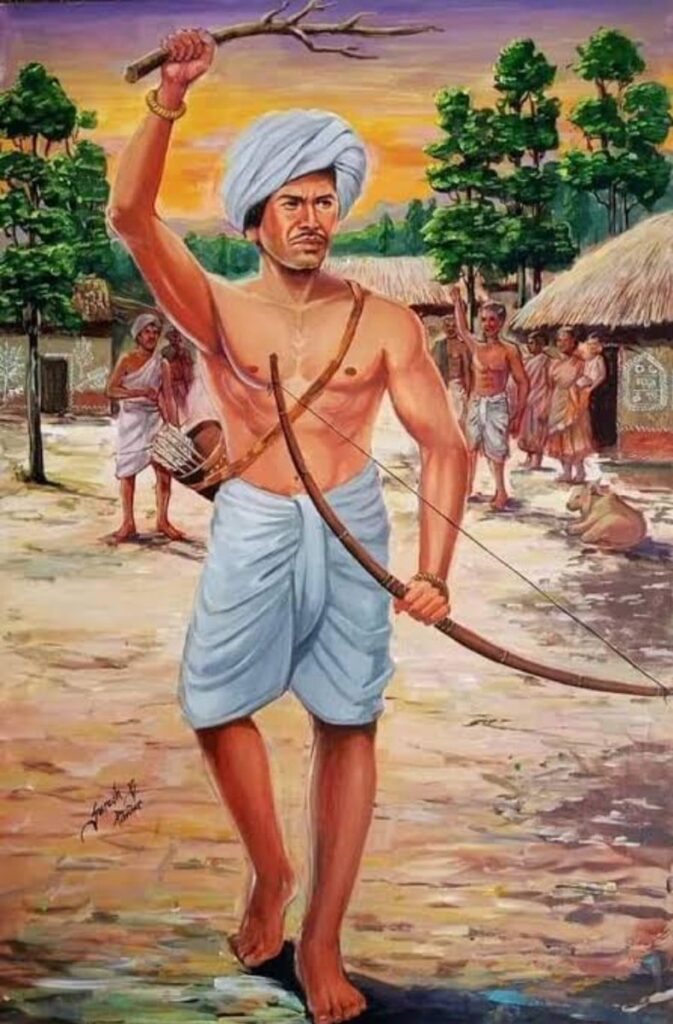
Birsa Munda's importance on Janjatiya Gaurav Diwas
On 10th November, the Government of India decided to celebrate a specific day to remember the contributions of our Adivasi or Tribal folks.
The day finally selected for “Janjatiya Gaurav Diwas” or Tribal Pride Day is 15th of November. The day has not been selected at random.
15th November is the birth anniversary of Bhagwan Birsa Munda, a tribal who stood his ground against the British Raj. Birsa Munda was a god to some and a freedom fighter to everyone else.
First Janjatiya Gaurav Diwas
Prime Minister Narendra Modi inaugurated the Bhagwan Birsa Munda memorial-cum-freedom fighter museum on what was the first ‘Janjatiya Gaurav Diwas’ or tribal pride day. This is the first museum out of ten dedicated to the tribes of India.
Nine other tribal museums – one each in Gujarat, Andhra Pradesh, Chhattisgarh, Kerala, Madhya Pradesh, Telangana, Manipur, Mizoram and Goa – would be opened soon.
While speaking virtually, PM Modi pointed out that India will be celebrating its 75th year of Independence next year so a decision was taken to give recognition to the tribes of India. These tribes helped further the freedom struggle in India and built a feeling of patriotism amongst the Indians against the Britishers.
“This museum [Birsa Munda museum] will become a living venue of our tribal culture full of diversity, depicting the contribution of tribal heroes and heroines in the freedom struggle,” he noted.
PM also pointed out that it was the former PM Atal Bihari Vajpayee who helped in the formation of Jharkhand and set up a “Tribal Ministry in the government of the country and linked the tribal interests with the policies of the country,”.
Who was Birsa Munda?
Birsa Munda was a tribal born on 15th November 1875 in Ulihati village which falls in Jharkhand today.
By the time Biswa Munda was born, majority of land of the tribes was annexed by the Britishers using unfair means. The Britishers using their power and policies transformed the tribals into landless labourers. The actual land owners were made to work as landless labourers.
The policy of subjugation did not stop at just land grabbing by the Britishers. The Britishers also helped the Church to advance its methods of conversion. The tribes were asked to become Christians in order to avail basic necessities of life.
The situation was so dire that Birsa Munda had to change his religion to Christianity and his name to Biswa David in order to gain education. However, after a few years the mother of Biswa Munda was inspired by the then freedom struggle and removed Biswa Munda from the missionary school and renamed him Biswa Munda, she also gave up Christianity and came back to her tribal fold.
In such a tumultuous time, Biswa Munda realised it very young that the Britishers have to be stopped and an aggressive stand is imminent to save their culture and people.
Godship
Birsa Munda is referred to as “Bhagwan” or God by some for taking this stand and starting the “ulgulan” or what would translate to “The Great tumult”.
Ulgulan is the rebellion where the tribes of Jharkhand fought for their water, land and culture.
Birsa Munda in 1895 established himself as the messenger of God destined to bring back prosperity and land to the tribes. He also brought in many reforms and fought off many superstitious beliefs of the people.
End of Birsa Munda
Birsa Munda wreaked havoc on the colonisers of India. In 1900, a prize money of Rs. 500 was fixed by the Britishers to anyone providing information leading to the capture of Birsa Munda.
Birsa was caught after a close aide revealed his location to the Britishers.
Birsa even after his capture requested his followers to forgive the person who gave up his location.
Birsa later passed away in jail on 9th June, 1900 after he puked blood. However, it is believed that the Britishers had poisoned his meal to silence him.
